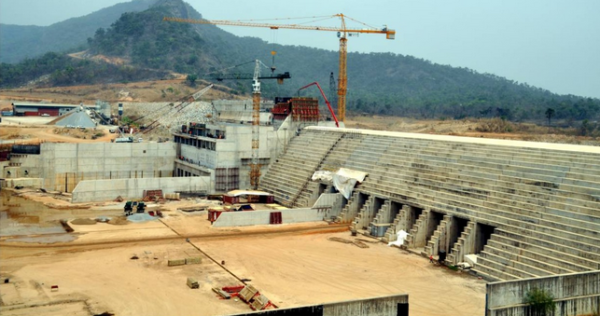It is often noted that Nigeria is the “Giant of Africa”, but it also requires no oracle to realise that that the Giant of old only exists on paper today – much to the chagrin of patriotic Nigerians. This unfortunate situation that has seen the African Big Brother nation become a prototype of a failing country is mainly a function of irresponsible, reprehensible, incorrigible and outrightly bad governance.
This governance pattern has stagnated the growth of Africa’s most populous country over the years and rendered it economically comatose and synonymous with corruption. Of the disturbing acts perpetuated by self-seeking political office holders in Nigeria is that of funding white elephants – wasting inadequate resources and accruing debts – at the expense of critical infrastructural and social projects.
Yet, much like the proverbial elephant in the room that gets avoided as though it is not there, most Nigerians only grumble a little and then go about their lives, ignoring the shocking rate of white elephants and abandoned projects that now pervade the country. Surprisingly, some even celebrate these projects that bring zero value, while politicians involved revel in a false sense of achievement.
These white elephants which abound all over Nigeria have gulped – and some are still gulping – billions that could have been put to better use. Worthy of note among numerous cases are the Owerri City of Statues; the ill-considered Kaduna Port and Refinery; tactless State Airport projects in Ogun, Osun, Ekiti, Benue, Ebonyi, Nasarawa, Kogi, Abia and Jigawa; the unconventional Convention Centres in Asaba and Calabar, and their international version in Gombe; as well as the otherworldly Ebonyi Ecumenical Centre, among other public-swindling projects.
Similarly, there are many white elephant-like abandoned projects across the country. Chief among these is the Ajaokuta Steel Complex in Kogi, which has gulped $8bn (instead of the $65 million initial budget) but is reportedly out-of-date. Only 98 per cent completed 28 years after the due date. Others included but were not limited to the Monorail projects in Rivers and the Cross-River States, Plateau Olympic Stadium, MKO Abiola National Stadium, the Millennium Tower, the National Library Headquarters, and the Kano Light rail project.
Even though the Federal Government is already struggling to fund the yearly appropriation bills, politicians continue to plunder without care and fund white elephants. This is as Nigeria’s fortune continues to dwindle and fluctuate along with the oil market due to the failure to diversify the economy appropriately.
Hence, it is high time Nigerians, as citizens interested in the growth of their country, ensured they are acquainted with whatever the commonwealth is being spent on across all areas of government and be ready to take on the government on the significance of a project. Nigerians must change their attitude towards government handling of the national resources for the country’s good. In addition, the media also need to take their watchdog role much more seriously before it is too late.
